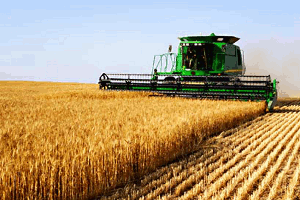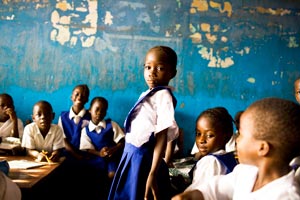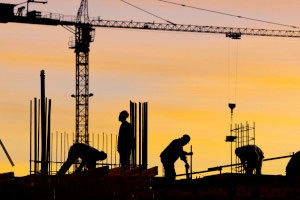
Agribusiness
In many countries, small-sized farms with limited mechanization and capacity produce crops, leading to poor yields. Fragmented markets, price controls, and poor infrastructure also hinder production. Many of the agricultural products produced in the region, such as maize, rice, and palm oil, are not competitive globally or have low profit margins. This means that Sub-Saharan Africa is ill equipped to meet its food requirements, which are set to double in the next 30 years or even sooner. The traditional approaches to organizing farmers and forming cooperatives need to be revised to meet the following development challenges of the twenty-first century:
- The increasing absolute and relative poverty in many countries
- The degradation of natural resources such as soil, water, flora, and-fauna
- The low involvement of women in health, agriculture, and other development programs
- The poor health and education facilities in rural areas
- The increasing sociopolitical unrest among the communities
Alkali Capital mission is to empower local communities, teach the principles of community-organizing and group management skills, and lead farmers toward a new era that will make each and every country self sufficient.
At Alkali Capital, we dream of a food production model that increases nutrition options while at the same time allows for entrepreneurship at all levels of the production unit including the producers themselves.

Education
Education is one the most important foundation of any country and continent. Africa’s educational challenges are not fundamentally different from those of the rest of the world, although they are more basic and urgent – and they can, at times, feel more overwhelming. The universal power of education to transform lives for the better feels more urgent in Africa, too. Better education, of which literacy and numeracy are the bedrock, will be fundamental to sustaining growth and prosperity across the continent. Most importantly, education should provide some universal learning goals around which the global community – government, business and civil society – can rally. Alkali Capital provides a guiding light to overcome Africa’s learning crisis. Alkali Capital aims to provide research facilities to universities, as well as scholarships to the most deserving students. Alkali Capital aims for a complete revolution and reinitialize our academic system in order to fit our needs.

Infrastructure
More infrastructures translate into more regional development. Africa and its country’s sizes often translate in humongous parts of the people being underserved. Alkali Capital is working into regional airport regional renovations. One of the worst hassle in Africa is having to travel to and from small region’s economy centers; developing airports facilities will improve the local economy as more people, layman and decision-makers, will be able to access these areas and have a first hand outlook and access on the products, the production, the investment opportunities, and the sale route options. Infrastructure building is an integral part of any of Alkali Capital projects. In order for the farm products to be sold, there are great needs to have roads to access the markets. The need to build/renovate roads will open-up the regions’ accessibility, which lead to economic growth in those regions; For many locally goods and delicacies will then be marketable. All Alkali Capital projects are environmentally sound. At Alkali Capital, we believes in green energy and the prospect of Africa being a leader of its applications and research in the short future.

Real Estate Development
The burden of the African housing crisis on the economy and human dignity is tremendous. The income used in housing expenses affects many economic sectors by decreasing the consumption. The share dedicated to savings is decreased and the borrowing required for purchasing, entering leases, or just keeping up-to-date with rent payments carries systemic risks. The lack of housing decreases workers mobility, applying a negative pressure on employment opportunities. The youth faces great challenged entering the working world due to impossibility of relocating, which decreases their search areas. As a result, a person place of abode defines the employment opportunities, limiting social and economic ascension. Alkali Capital has pledged to build 200,000 housing units by 2020, social and economical movement shall arise from this little effort; indeed jobs will be created and real-estate price will decrease allowing more people to apply to more diverse places of employment.
Alkali Capital has planned to build 750,000 housing units by 2020, social and economical movement shall arise from this little effort .

